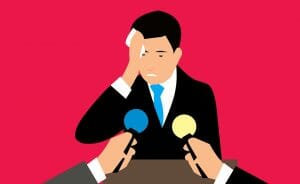Durant la fameuse période des Trente Glorieuses, le monde a connu un incroyable développement de ses capacités scientifiques, qui a permis aux pays de s’industrialiser et de se développer. En améliorant leur productivité, et surtout à travers la Recherche et le Développement, la vision futuriste et utopique des années 1950 est devenue réalité. Ce progrès scientifique mondial a débuté avec la course à l’espace (compétition entre les Etats-Unis et l’URSS pour conquérir l’espace durant la Guerre Froide), et a été alimenté par la formidable croissance économique des années 1950 aux années 1970. Ce progrès s’est ensuite répandu dans tous les domaines : la santé et la médecine, les transports, les loisirs…
The notion of “scientific progress”
The official program admits the several perks of scientific progress, but focuses mostly on its collateral damages and indirect consequences. How can we reconcile ethics and progress? What is the roles of civilians in the fight for an ethical progress? This notion is clearly linked to the environmental impact of scientific progress and questions the extent of such a consequence.
Relevant examples to use to talk about scientific progress
Elon Musk : utopian or real progress?
You could also use the famous example of Elon Musk’s Space X and its will to conquer Mars and send humans to live in it, or also the development of his super fast Hyperloop train which could connect San Francisco to Los Angeles in less than 35 minutes. This example testifies nowadays to the great development made possible by scientific progress.
Frankenstein, novel by Mary Shelley : evil progress or how progress backfires on the creator
Scholar Victor Frankenstein builds a horrible monster who fails to find his own place in the human society. Consequently, the monster starts seeking revenge and becomes totally out of control. It might be the most famous example on the damages of progress. Classical, and efficient, this example is a must.
The movie My Sister’s Keeper by Nick Cassavetes : ethics VS progress
Anna is born after an in vitro fertilization to save her sister Kate who suffers from leukemia. Until the age of 15, Anna keeps helping her sister with organ transplants and stem cells and blood donation. When she realises her sister is in need for a new kidney, she decides to sue her parents to recover her rights over her own body.
This movie is definitely the most relevant and common example to show how scientific progress and ethics aren’t always compatible.
How to use these examples during your exam about scientific progress ?
Example of a question : “Discuss the following question: is scientific progress always beneficial for humans? Illustrate your point of view using fictional stories or real-life examples from the English-speaking world.”
This test question is very open : it allows you to qualify you point of view, and to show that you take into account all the aspects of the notion, its advantages as much as its drawbacks. It is clearly stated that the examples you use can be either fictional or real-life stories. Your essay can be easily structured as follows :
-
A first paragraph on the benefits of scientific progress (you can use an example on the health industry and how Artificial Intelligence helps increasing life expectancy)
-
A second one on its drawbacks (Frankenstein is perfect here) and this way, you will have used both real-life examples and fictional ones.
In the end, don’t hesitate to clearly state your point of view. For example : “As far as I am concerned, I believe scientific progress has outstanding benefits, provided it is controlled and ethical”.
Useful vocabulary and key words about scientific progress
-
Une découverte majeure : a breakthrough
-
Révolutionnaire : ground-breaking
-
A la pointe du progrès : state-of-the-art (used as an adjective → State-of-the-art technology)
-
Intelligence artificielle : artificial Intelligence (AI)
-
Eugénisme : eugenics
-
Clonage : cloning
-
Un informaticien : a computer scientist
-
Connaisseur en informatique : computer-savvy
-
Un savant : a scholar
-
Respectueux de l’environnement : environmental-friendly
-
Ethique (nom) : ethics
-
Ethique (adjectif) : ethical
Conclusion
Even though it has permitted a high development of the life conditions, scientific progress raises nowadays environmental and diplomatic issues which need to be solved in order to assure a sustainable growth. The consequences of progress are imminent and it is of humans’ responsibility to deal with them.











